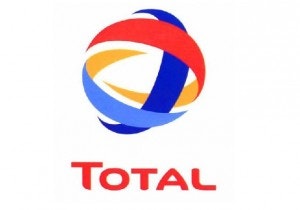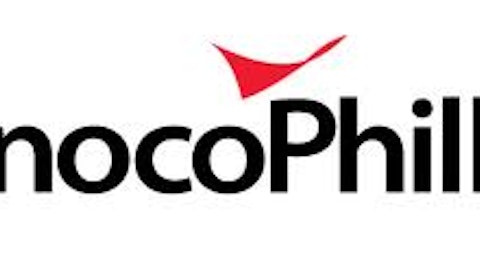TOTAL S.A. (ADR) (NYSE:TOT) is a large European oil company that doesn’t get as much attention from investors as US oil companies like Exxon Mobil Corporation (NYSE:XOM) and Chevron Corporation (NYSE:CVX). However, it is the third largest player in the oil-gas industry. The United States companies do have a strong track record and a positive growth outlook in the long-term. However, TOTAL S.A. (ADR) (NYSE:TOT) should not be overlooked if you are considering a non-US energy stock.

Solid business strategy
TOTAL S.A. (ADR) (NYSE:TOT) has operations in regions where the oil-gas market is growing quickly, which helps with a steady generation in cash flow. It manages risk by having both upstream operations and downstream operations spread out in several different regions. That way, if there is a disruption in one area, the company will feel less of an impact. Total’s exposure in growing regions is greater than the industry average, while exposure is minimal in established regions such as North America and Europe’s North Sea.
TOTAL S.A. (ADR) (NYSE:TOT)’s business strategy reduces risk for the company, as the oil and gas industry can be volatile. Another positive point for Total is that the company maintains the quality of its assets and avoids unnecessary costs. The money the company has invested in areas that are growing quickly provides quick cash, which helps keep the balance sheets looking good.
Solid financial strategy
Total’s market cap is $116 billion. In the oil-gas industry, the standard is to measure enterprise value to EBITDA. This ratio accounts for debt requirements in the oil and gas industry, since many oil and gas companies tend to have higher debt than other companies. Total’s ratio is around 3, which shows that the company is properly utilizing its operations effectively and hasn’t taken on too much debt. Total’s $43 debt is manageable because it has high equity that results in a ratio of net debt to the company’s equity of less than 0.25.
Since the flow of operating cash is around $30 billion, Total can pay interest on its loans without taking a significant financial hit. Also, having free cash of more than a $1 billion means that the company can manage its debt effectively. Total also has $18 billion in cash on hand, which will help when making acquisitions, expanding the business, and stimulating growth. In the oil and gas industry, making acquisitions, diversifying, and expanding into new areas is one of the major keys to success.
Attractive to investors
With a P/B ratio of 1.2 it is well below the industry average of 1.8. As you can see from the numbers, the company is at a value much closer to its total worth. The company also has a high dividend yield close to 6%, which is a great benefit for investors. The stock has a positive reputation for ROI, and the general perception among investors is that the stock is well managed.
Total is currently trading at 7 times forward earnings, which is quite low. Is it a good value? We all know that it’s not wise to purchase a stock just because it’s cheap. The stock has to have a positive future outlook. In this case, Total represents a good value, as the company is on the right track with a PEG+Y ratio of almost 1.
Analyzing the competition
Exxon Mobil Corporation (NYSE:XOM) is currently trading with a P/E ratio of around 9. Gains have been good for Exxon in the past several years–It has gained 50% in the past 8 years alone. The strong performance is most likely because Exxon has had a very stable growth track record. Exxon Mobil Corporation (NYSE:XOM)’s EPS has grown by almost 70% over the past seven years. The dividend yield would appear to be lower than Total. It is around 2.7%, but this is when you don’t factor stock repurchasing into the equation. However, Exxon repurchases stock every year, which puts the effective dividend at 7%. The two companies have slightly different strategies. Total focuses on continuous cash flow generation and increasing cash on hand, while Exxon is more focused on long-term strategies for growth.
Chevron Corporation (NYSE:CVX) is another key player in the industry. It is worth $243 billion and has a diversified business, with upstream process and downstream processing in many different regions. Chevron is in additional sectors as well, including molybdenum and coal mining. Chevron’s EPS is around $13.5, and the yield is close to 3.2%. Like Exxon, Chevron Corporation (NYSE:CVX) is also focused on a long-term growth strategy. It has a large amount of cash on hand ($46 billion), which will help it make acquisitions and expand. The profit margin (mid-teens) and the operation margin (high-teens) have been steadily improving since 2008. Chevron’s financials remain stable, which gives its stock a positive future outlook.
The bottom line
If you are looking for a stock that is a good value and has a high dividend yield, Total’s stock is one of the best you will find in the industry. Exxon and Chevron are both very stable and generally good investments. However, Total might be a great addition to your portfolio, since the company has a slightly different business strategy.
If you are interested in TOTAL S.A. (ADR) (NYSE:TOT) stock, now is a great time to buy. The price has temporarily decreased after a spill of natural gas in the North Sea. However, there is no doubt that the stock will soon recover. For these reasons, I recommend that investors buy Total stock if they are looking to buy stock in the energy sector.
The article An Oil Giant With a Super Dividend originally appeared on Fool.com and is written by Nauman Aly.
Nauman Aly has no position in any stocks mentioned. The Motley Fool recommends Chevron and Total SA. (ADR). Nauman is a member of The Motley Fool Blog Network — entries represent the personal opinion of the blogger and are not formally edited.
Copyright © 1995 – 2013 The Motley Fool, LLC. All rights reserved. The Motley Fool has a disclosure policy.


